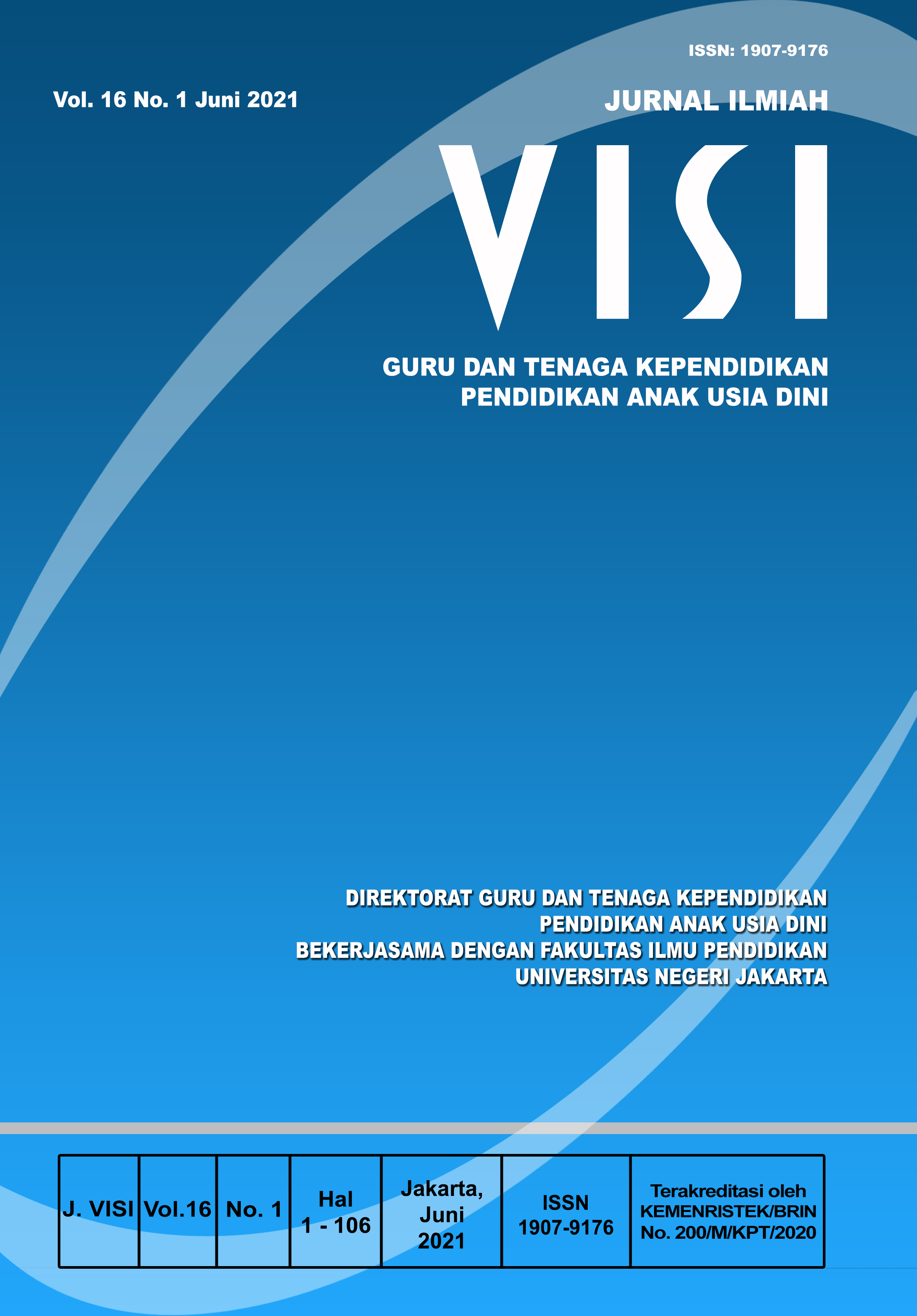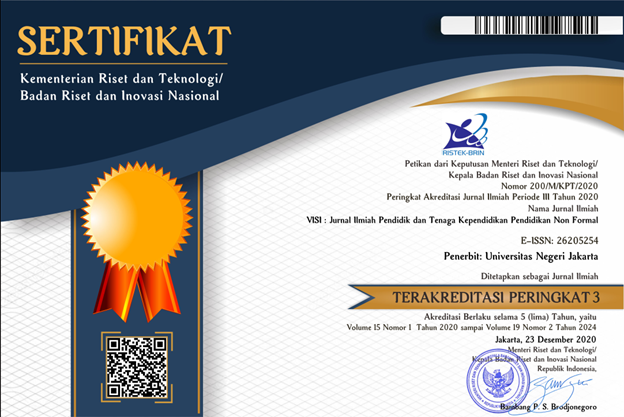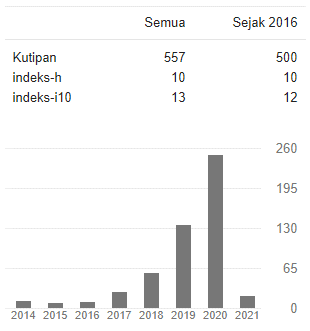FAMILY-SCHOOL PARTNERSHIPS OF INDONESIAN FAMILIES ENGAGED IN POSTGRADUATE STUDY
KEMITRAAN SEKOLAH-KELUARGA PADA KELUARGA INDONESIA YG MENGIKUTI STUDI PASCASARJANA
DOI:
https://doi.org/10.21009/JIV.1601.1Keywords:
Australia, CALD children, family-school partnerships, Indonesia, anak CALD, kemitraan orang tua-sekolahAbstract
Indonesian students who study in Australia sometimes bring their family members, such as their children. Therefore, they do not only play a role as a student but also as a parent. The role will be more complex as they need to build partnership with their children’s school. Building family-school partnerships with families from culturally and linguistically difference can be challenging. Therefore, the aim of this research project was to understand the perspectives of Indonesian families to the notion of partnerships with the school for their children’s education. This study specifically focused on Indonesian families who study postgraduate education in Australia and have a child or children studying in early childhood education settings. This research was based on an exploratory case study. It involved semi-structured interviews with open-ended questions. The data was analyzed using an inductive strategy and thematic analysis. Findings showed that there was discrepancy between participants’ perspectives on authentic partnerships and the practice. Parents viewed partnerships as a collaboration only when they had concerns to children. Lack of open communication emerged as the challenge because participants’ role as a student. Parents felt hesitant also to ask about their children’s school program because of the lack of communication from the teacher and the cultural factor. Therefore, Indonesian families who have dual roles, as students and parents, and Australian teachers who have students that their parents also study could rethink what kind of partnerships that is effective for the benefit of children.
Mahasiswa Indonesia yang belajar di Australia terkadang membawa serta anggota keluarga, salah satunya adalah anak. Oleh karena itu, mereka memiliki peran ganda, sebagai mahasiswa dan sebagai orang tua. Peran tersebut menjadi lebih rumit jika anak mereka juga sekolah di Australia karena mereka diharapkan juga membangun kemitraan dengan sekolah anaknya. Membangun kemitraan antara sekolah dan orang tua dari negara yang berbeda bahasa dan budaya memiliki tantanganan tersendiri. Oleh karena itu, tujuan dari penelitian ini adalah memahami perspektif keluarga Indonesia tentang konsep kemitraan antara keluarga dan sekolah. Penelitian ini berfokus pada keluarga Indonesia yang sedang melanjutkan studi S2 di Australia dan mempunyai anak yang bersekolah di pendidikan anak usia dini. Penelitian ini berbentuk studi kasus eksploratori. Pengambilan data melalui wawancara semi-struktural dengan menggunakan pertanyaan terbuka. Analisis data menggunakan strategi induktif dan analisis tematik. Hasil penelitian menunjukkan orangtua memiliki kekhawatiran yang berbeda terkait anaknya di sekolah. Ada ketidaksesuaian antara perspektif partisipan terkait konsep kemitraan dengan praktek di lapangan. Orangtua menganggap kemitraan sebagai kolaborasi hanya jika ada permasalahan pada anak. Kurangnya komunikasi menjadi tantangan kemitraan akibat peran orang tua sebagai mahasiswa. Orangtua ragu untuk bertanya terkait program sekolah karena kurangnya komunikasi dari guru dan juga faktor kultural. Maka dari itu, keluarga Indonesia yang memiliki peran ganda, sebagai mahasiswa dan orangtua, serta guru PAUD di Australia yang memiliki siswa dengan orang tua yang juga pelajar di Australia dapat meninjau ulang kemitraan yang efektif untuk mendukung pembelajaran anak.
Downloads
Published
How to Cite
Issue
Section
License
Authors who publish with this Journal agree to the following terms:
- Author retain copyright and grant the journal right of first publication with the work simultaneously licensed under a creative commons attribution licensethat allow others to share the work within an acknowledgement of the work’s authorship and initial publication of this journal.
- Authors are able to enter into separate, additional contractual arrangementfor the non-exclusive distribution of the journal’s published version of the work (e.g. acknowledgement of its initial publication in this journal).
- Authors are permitted and encouraged to post their work online(e.g. in institutional repositories or on their websites) prior to and during the submission process, as it can lead to productive exchanges, as well as earlier and greater citation of published works.
- Users/public use of this website will be licensed to CC BY-NC-SA Creative Commons Attribution-NonCommercial-ShareAlike 4.0 International License









